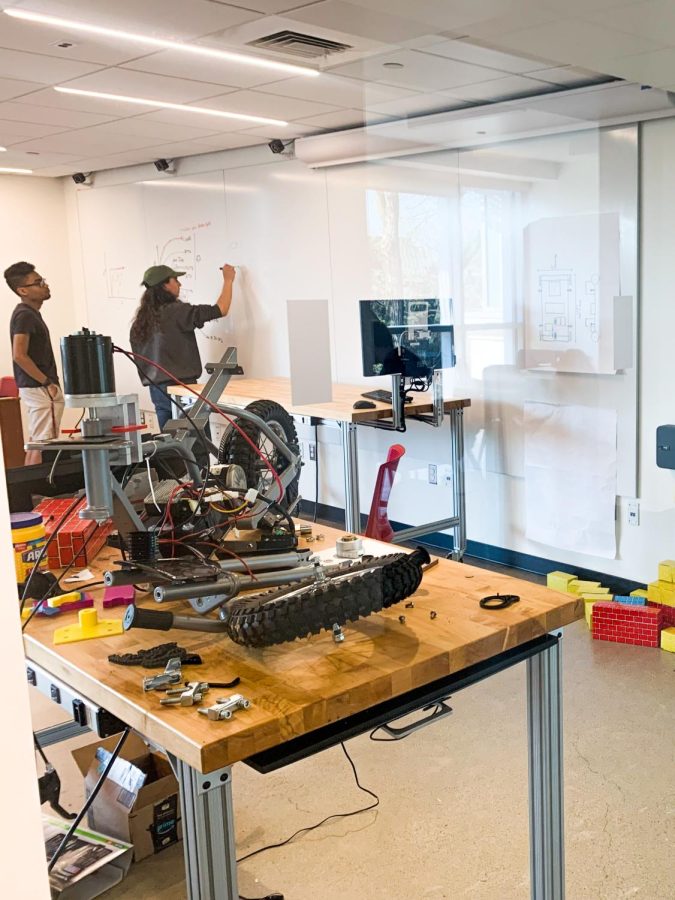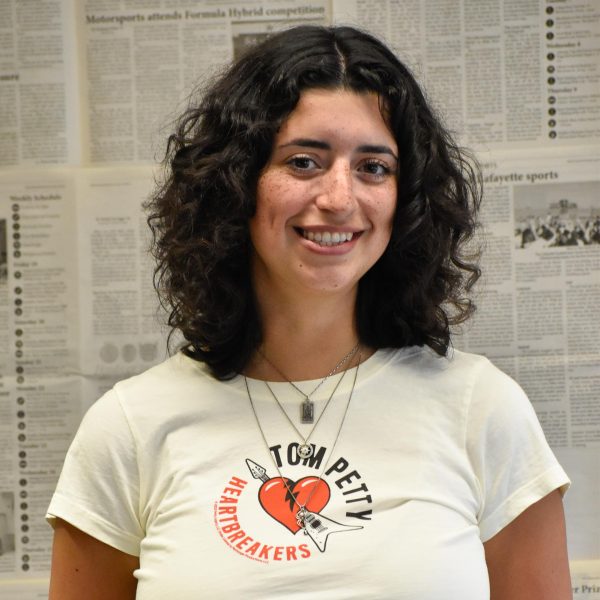While the majority of Lafayette College’s majors are accredited, the integrative engineering program – as a fairly new major – does not count among them. Some students argue that the college could have been more transparent about the accreditation process.
In order for a major or degree to be considered valid with current standards in higher education, it must undergo accreditation. Third-party organizations, such as ABET, will review a new program after a schools applies for it to gain accreditation
“For new programs, it is not possible to be accredited prior to having a graduating class,” David Brandes, professor of civil and environmental engineering and chair of integrative engineering, wrote in an email.
Lafayette has not yet had a first class of integrative engineering graduates.
“Once our first class graduates (this spring) we will write up our self-study assessment report and then request a visit by an ABET review team,” Brandes wrote.
Some students within the Integrative Engineering program – which consists of three focus areas: robotics, environmental & energy, and bioengineering – argue that the schools wasn’t transparent enough about the fact that the program would not be accredited.
“At the beginning, we were told many times that we were the guinea pigs, the first class, and our input would definitely be taken into consideration,” Mia Powell ‘24, an integrative engineering major with a concentration in robotics and English minor, said. “The changes they’re making are just making it harder for us to graduate.”
Powell said that she was not offered an internship after the company asked her for proof of accreditation.
“When I was applying to this school, they told me it would be accredited by the time I graduated, and that’s not something that’s going to happen, and I think they knew that in the beginning,” Powell said. “I’m seeing how it’s impacting our lives.”
Among the changes – which students in the robotics concentration have said impacted them particularly hard – are those involving courses.
Powell said that it had not been communicated to students when certain courses were taken away from counting towards the major, such as EGRS 480: Sustainable Solutions.
“When the first issue came up with the EGRS class we were taking, [Yih-Choung Yu, professor of electrical and computer engineering and advisor for the robotics focus area] did not tell us that it had been taken away and did not tell us that there would be changes with our electives,” Powell said. “We don’t have the space to take electives and then make them up in the meantime.”
“A list of courses from the Environment & Energy focus [was] mysteriously and mistakenly … put on the Robotics concentration list in Degree Audit and then later removed by the Registrar’s office,” Yu wrote in an email. “Students have a tendency to believe that DegreeAudit is 100 percent accurate. As soon as we noticed the issue, the program chair and the advisory board members started looking for possible ways to address this mistake on DegreeAudit to make sure students have their course credit without affecting our program accreditation.”
Powell and other robotics students met with Brandes about their issues with courses and transparency last Friday.
“Dr. Brandes was very open to hearing our suggestions,” Powell said.
One of the outcomes of the meeting was the students’ being able to “petition courses to count and abide by ABET stuff,” Powell said, specifically about the ERGS elective. In order for the elective to count for the major, it must be petitioned as to why it fulfills the learning outcomes that ABET requires for program accreditation.
However, one of the more pressing concerns that were brought up during the meeting was the timeline for accreditation.
“We were also told that they might not apply to accreditation this year because of the small class size,” Powell said. This spring, only eleven integrative engineers are graduating.
In an email, Brandes said that “there are no changes to the timeline” of the accreditation process.
Students within the robotics focus area are not the only integrative engineers that said they noticed a lack of transparency about accreditation.
“I just didn’t know about it before, like I only found out when we were having co-curriculars for ES 101 and I went to one about integrative engineering,” Sophia Gaysinskiy ‘26, an integrative engineering major with a focus in bioengineering, said. “And that’s when I found out that it wasn’t accredited … I didn’t know that coming into it.”
Gaysinskiy, along with other freshmen integrative engineers, will likely not have to worry about the program being accredited by the time they graduate and apply for jobs. However, the situation is still pressing for juniors and seniors.
“They’re doing everything they can, but they’re not being clear with us,” Powell said.




























































































































